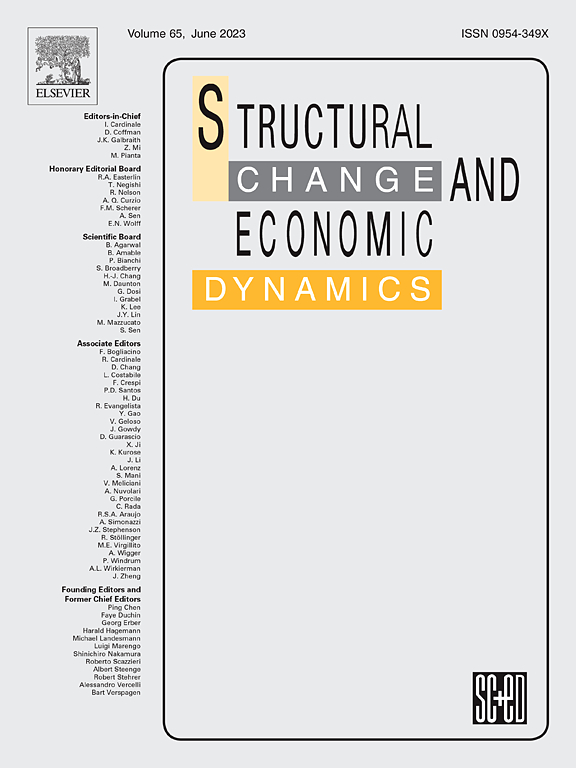产融融合能提高企业全要素生产率吗?来自持有金融机构股份的上市公司的证据
IF 5.5
2区 经济学
Q1 ECONOMICS
引用次数: 0
摘要
提高全要素生产率是推动中国经济高质量发展的关键。本研究考察了产业金融一体化是否有助于提高企业全要素生产率,这是推动大型企业集团发展的关键战略。通过对中国a股非金融类上市公司2008-2023年面板数据的分析,本研究得出了三个主要实证结果。首先,产融融合对企业全要素生产率有正向影响,成熟期企业比成长期或衰退期企业受益更大。二是产融融合通过薪酬激励、创新投入和经营能力三个主要渠道提升企业全要素生产率。第三,对于融资约束程度较低的企业、处于高竞争力产业或非高技术产业的企业以及位于金融发达省份的企业,积极效应更为明显。本研究的发现为旨在利用金融机制促进实体经济发展的政策制定和企业战略提供了一个理论框架。本文章由计算机程序翻译,如有差异,请以英文原文为准。
Can industrial–financial integration boost corporate TFP? Evidence from listed corporations holding financial institutions’ shares
Enhancing total factor productivity (TFP) is critical for driving high-quality economic development in China. This study examines whether industrial–financial integration—a key strategy for advancing large corporate conglomerates—contributes to boosting corporate TFP. Drawing on analysis of panel data from non-financial corporations listed on China’s A-share market (2008–2023), this study demonstrates three main empirical findings. First, industrial–financial integration positively influences corporate TFP, particularly benefiting corporations in the maturity stage, as opposed to those in the growth or decline stages. Second, industrial–financial integration enhances corporate TFP through three primary channels: compensation incentive, innovation input, and operational capacity. Third, the positive effects are more pronounced for corporations with low financing constraints, those in highly competitive or non-high-tech industries, and those located in provinces with advanced financial development. This study’s findings provide a theoretical framework guiding policy development and corporate strategies aiming to leverage financial mechanisms in advancing the real economy.
求助全文
通过发布文献求助,成功后即可免费获取论文全文。
去求助
来源期刊

Structural Change and Economic Dynamics
ECONOMICS-
CiteScore
9.60
自引率
4.90%
发文量
159
期刊介绍:
Structural Change and Economic Dynamics publishes articles about theoretical, applied and methodological aspects of structural change in economic systems. The journal publishes work analysing dynamics and structural breaks in economic, technological, behavioural and institutional patterns.
 求助内容:
求助内容: 应助结果提醒方式:
应助结果提醒方式:


